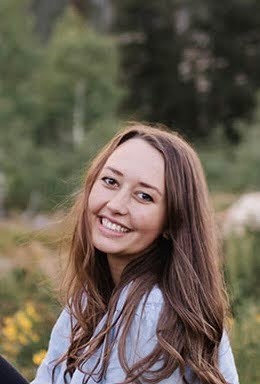
Mission Statement:
Invite us to Speak
Host Facilitated Workshop
Volunteer
Donate to Support our Mission
Eva Elle
Community Organizer
"They felt free to ask any question of us and we felt free to ask any questions of them. It was such an environment that we knew we could trust that none of us would take offense."
Guy Mccoy
Workshop Attendee
"I agree that our gathering was a wonderful success and honestly I couldn't believe the candor with vulnerability that our new friends spoke with. It was an honor to meet those I didn't know and I look forward to developing even deeper trust relationships with each of them."
Kayla Ray
Local Government Official
"After hearing stories…my thoughts about [the issue] became more expanded."
Leila Vance
Public Forum Attendee
"I learned to lower the mask and figure out who each other was and how you thought the policy met their needs. It’s far more nuanced and complicated than you believe. And that’s what I learned from listening. When you’re reading the other person’s proposals, you’re not getting anxious and upset and defensive, you’re thinking about this person and their stories. And I want them to have what’s important to them as well."
Panels are crafted by inviting interested and relevant parties from each side of a contested issue.
The Venn Diagram Project facilitators meet with all parties from both sides separately, prior to the meeting. In these gatherings, all participants have the opportunity to openly, candidly, and civilly share their views and thoughts on the issue at hand. Developing trust between participants and The Venn Diagram Project facilitators is also a central part of this process .
When adequate trust is built between each side and The Venn Diagram Project, each side is invited to meet together to seek to find middle ground. This begins with simple trust exercises conducted by The Venn Diagram facilitators.
When sufficient trust exists, participants are invited to share their interest and thoughts about the issue at hand.
When sufficient trust exists after this round, participants are invited to share areas of potential common ground or overlap that emerged as panel members from each side shared their thoughts. Participants are never asked to compromise their core values.
The participants’ discoveries of common ground are then articulated and honed to accurately capture the ideas shared through group consensus. This can be done during in person meetings with panel members or via a Google document that all panelists can edit and collaborate on until full consensus on ideas and language is reached. Only unanimous items are shared and promoted as outcomes.
Panelists then gather to unanimously determine the best avenues for sharing these results – whether it’s through influencing policymakers and legislators or sharing common ground ideas with the public through articles, interviews, and speeches. Each panelist’s participation is only revealed with consent.
Publications:
Podcasts:
United We Pledge: Episode 14 - Melaney Tagg and Promoting Unity in Your Community on Apple Podcasts
Our Articles:
Upcoming Events
Presentation
Students for Understanding sponsored by The Sorensen Center for Moral and Ethical Leadership at BYU
Panel
Parental Involvement in Schools – ongoing, private panel
TBD
TBD
Our Team
Melaney Tagg
Co-Founder & Director

Maybree Spilsbury
Managing Director
LGBTQ+/Religious Right Panel
A facilitated conversation where those who champion LGBTQ+ rights and those who emphasize religious freedoms come together to share personal experiences, clarify concerns, and seek common solutions. This panel highlights trust-building as a cornerstone for meaningful, ongoing dialogue.
Guns Panel
A structured forum for exploring gun ownership, public safety, and the balance of individual and community interests. Participants examine personal stories, constitutional considerations, and data-driven insights to uncover areas of overlap and devise collaborative strategies.
Pro-Life/Pro-Choice Panel
A carefully guided discussion for individuals who hold diverse convictions on abortion, designed to foster empathy, civil discourse, and a deeper understanding of core values. This panel encourages listening and constructive engagement to uncover shared concerns and potential paths forward.
Democrat & Republican Leaders Panel
A meeting space for elected officials and community representatives from across the political spectrum to identify actionable consensus points. Through candid conversation and mutual respect, panelists explore realistic, bipartisan approaches to pressing local and national issues.
Parental Involvement in Schools
A setting that brings together parents, educators, and community members to discuss curriculum, policy, and student well-being. The conversation centers on respectful collaboration, aiming to elevate both parental voices and professional expertise for the benefit of all students.
What is the Venn Diagram Project?
The Venn Diagram Project uses a proven model to facilitate dialog that builds trust, shares ideas, and finds overlap between groups on various issues.
How did The Venn Diagram Project get started?
The Venn Diagram Project originated in response to conflict in the local school system between conservative voices and the LGBTQ+ community and its supporters regarding a proposed policy. Concerned citizens sought to bring these opposing groups together to find common ground. They, in fact, agreed on much and subsequently influenced the local policy on the issue. VDP methods have then been applied to a wide variety of issues.
Do we promote any particular political agenda?
No, we are a non-partisan non-profit. Our mission is to empower people with conflicting views to engage more civilly and constructively with each other, never to advocate for a particular side. We welcome all conciliatory participants of all backgrounds and beliefs.
What kinds of issues do we address?
We facilitate dialog on a range of polarizing issues, where deeply held beliefs and values come into tension. We applied our methods to LGBTQ+ issues, guns, abortion, parental involvement in public schools, among other issues. We plan to apply our methods to racism, environmentalism, political orientation, as well as a host of other issues.
How can I bring the VDP approach to my community?
We offer workshops, speaker engagements and consulting to help communities implement our trust-building dialogue model. Contact us to discuss your needs.




